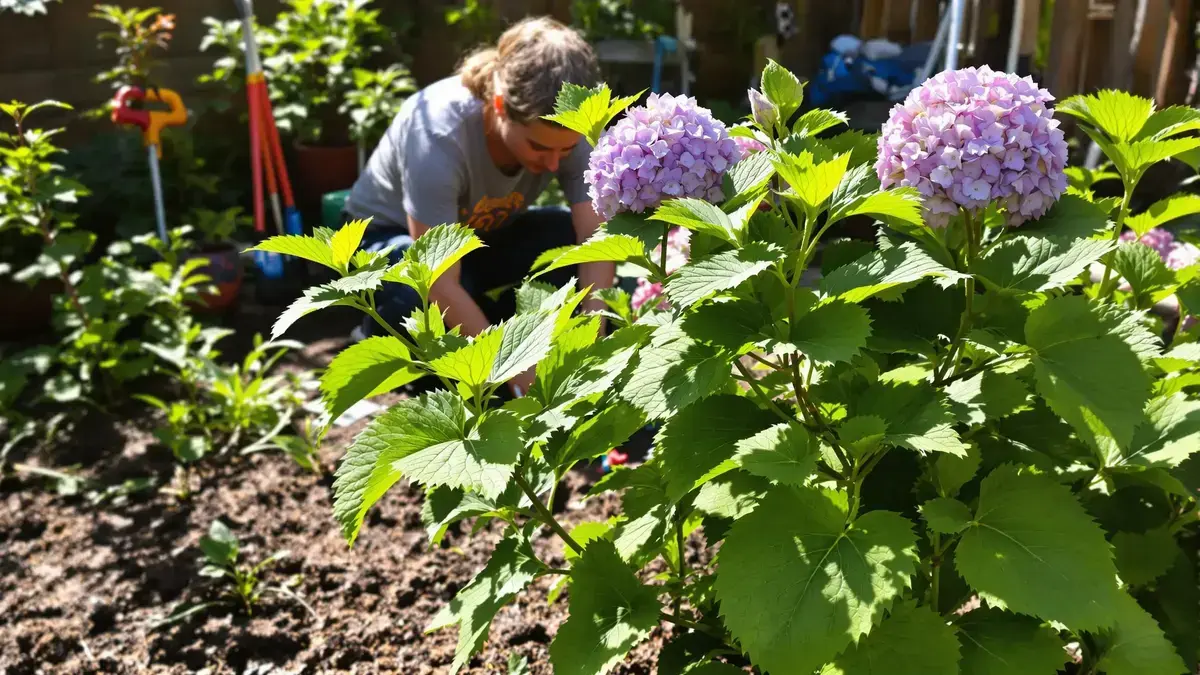The hydrangea, famous for its bright flowers, can sometimes disappoint with its lack of blooming. This frustrating situation often results from incorrect diagnoses and frequent mistakes in its care. A prudent spring is essential to uncover the inhibiting factors. Choices regarding pruning, exposure, soil, and watering can greatly affect bud development. By rectifying these missteps, you may well rediscover a lavish and dazzling bloom.
The Key Information
- The hydrangea is valued for its bright flowers.
- A crucial spring diagnosis is necessary to prevent the absence of blooming.
- Common mistakes: inappropriate pruning, inadequate exposure, and unsuitable soil.
- Correcting these errors can lead to abundant blooming.
The Bright Flowers of the Hydrangea
The hydrangea is prized for its bright flowers that enhance gardens and add a touch of vibrant color. However, it is common for many gardeners to face a puzzling issue: the total absence of flowers on their plant. This situation can quickly become frustrating for those eagerly awaiting the blooming of their hydrangea.
Crucial Spring Diagnosis
To remedy this problem, a spring diagnosis is vital. This time of year is critical for the plant’s health and can significantly influence its ability to produce flowers. Several factors must be taken into account to identify the errors that may inhibit blooming.
Common Errors to Avoid
Among the most common mistakes are inappropriate pruning, inadequate exposure, poor-quality soil, excessive fertilization, and irregular watering. Each of these mistakes can contribute to the absence of flowers, thus hindering the flourishing of the hydrangea.
Inappropriate Pruning and Its Consequences
Starting with pruning: inappropriate pruning can eliminate floral buds if the hydrangea is pruned too severely. It is important to know the right time to prune and to respect the specifics of the variety of hydrangea you are cultivating. Proper pruning can encourage the formation of new flowers, while overly aggressive pruning can have the opposite effect.
Light Exposure
Exposure to sunlight is another determining factor for the blooming of the hydrangea. A partially shaded exposure is ideal for these plants. Too much shade can reduce the hydrangea’s ability to bloom, just as excessive sun exposure can also harm their development. It is therefore essential to find the right balance of exposure to promote abundant blooming.
Soil Quality
The soil also plays a key role in the health of hydrangeas. They require rich, slightly acidic, and well-drained soil. Unsuitable soil can lead to drainage and nutritional problems, affecting their ability to produce flowers. It is advisable to conduct soil analyses to ensure that conditions are favorable for hydrangea growth.
Fertilization and Nutrients
In terms of fertilization, excessive nitrogen in fertilizers can harm blooming. Too many nutrients favor foliage at the expense of flowers. It is best to opt for a balanced fertilizer that meets the specific needs of hydrangeas, thereby ensuring optimal floral production.
The Importance of Watering
Watering is also a fundamental aspect to consider. Irregular or inadequate watering can lead to water stress on the plant. Deep and regular watering is recommended while avoiding saturation. A good watering regimen can support flower development and ensure the overall health of the hydrangea.
Increasing Blooming Chances
By correcting these errors, gardeners can not only minimize the risk of non-blooming but also increase the chances of abundant flowering. The hydrangea, when well-maintained and exposed to the right conditions, can offer a dazzling floral display and enhance the beauty of any garden.















